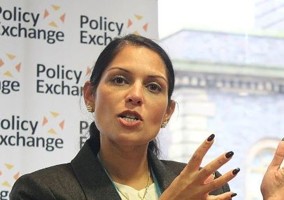In April last year, the board and senior leadership team at Refugee Action took what was, for our organisation, the unprecedented step of hauling money out of our reserves to frontload an emergency fund for people seeking asylum.
By this point, Covid-19 had taken a stranglehold on the UK. As cases and deaths rose, so did the predictions of an economic crisis for the country, industry and the charity sector.
These grim predictions in turbulent, uncertain times made decision-making a challenge. We knew we need less money for our services which support resettlement programmes, which relocate refugees directly to the UK from overseas, because the government had suspended these schemes. But we had little idea how Covid-19 would affect our fundraising-generated income.
Moving quickly
Despite this worrying financial context, however, we knew we had to move quickly.
We decided to shift £150,000 out of what are healthy reserves to finance – for an initial six months – increased frontline asylum services and a new Emergency Support Fund.
Catastrophic impact of Covid-19
Much of the country was struggling at this time, but calls to our clients revealed the catastrophic effect the pandemic was having on people seeking asylum.
In short, there was a far greater risk in not acting.
Our fundraising team would do everything to ensure we were able to replenish our reserves but, knowing the disastrous result of not throwing in extra support for people, we simply made a commitment to losing this money.
Before Covid-19, our then-called Destitution Fund operated by giving people in the asylum system enough money to make it to their next appointment. Money was taken out of petty cash and would be used almost exclusively for food and transport.
The fund was set up in 2000-2001, when government policy started to have a real impact on the ability of people in the asylum system to support themselves.
Once Covid-19 struck, we quickly realised that this system, and the amount of money used to fund it, would not stand up to the new pressures our services teams were witnessing.
Costs to care for asylum seekers
Our staff and volunteers began to make wellbeing calls to clients. More and more people told us that it was becoming much harder to make ends meet with their already measly £37 a week allowance from the government.
But what was most troubling was the rapid increase in the number of people reporting a serious decline in their wellbeing.
On top of the mental health-wrecking effects of poverty, people were experiencing loneliness, isolation and boredom.
The board and senior management team calculated an amount of money that was going to be needed to meet this demand, including paying for new roles in our asylum teams, greater use of translators, and expenses for our volunteers.
A new fund
For many of us, it took a pandemic to realise what’s essential in our lives. We wanted our new Emergency Support Fund – formerly called the Destitution Fund – to reflect that.
As well as extra support for food, clothes and other “traditional” essentials, our new fund helped with data packages for phones so people could stay in touch better, games packages for families to keep children occupied and educated, and digital devices to help people get online and connect.
Thanks to the welfare calls, the board and senior leadership team at Refugee Action saw early the consequences of not acting.
Government support for people in the asylum system doesn’t meet bare minimum standards in normal times. It was made so much worse in a pandemic. It seemed it was up to the third sector to alleviate the worst of what Covid could throw at people.
Backed by funders
The Emergency Support Fund would not rely on a fiver here or a tenner there to help. Instead, we were able to find out more about people, such as where they shopped for food or which phone contracts they used.
From that information, we could provide vouchers for their local supermarket to buy food and clothes, top up phones remotely or, for a handful of people, pay money into bank accounts.
After a few weeks of the fund, any financial risk from raiding our reserves melted away. Our funders and supporters saw what we were doing and came in behind us.
The Covid Emergency Fund set up by our fundraising team smashed all expectations thanks to the incredible generosity of our growing number of supporters.
In fact, it was so successful, we were able to plough another £150,000 into the fund and extra services for the second half of 2020-21.
The courage to act
At Refugee Action our core values are standing with refugees and people seeking asylum, courage and collaboration. To have not acted when we did would have run counter to who we are as an organisation.
That made our financial decision an easy one.
While we couldn’t have done this without healthy reserves, our impact would have been minimal without collaboration with our clients, partners, funders and supporters.
Penny Lawrence is chair of Refugee Action
Related news











